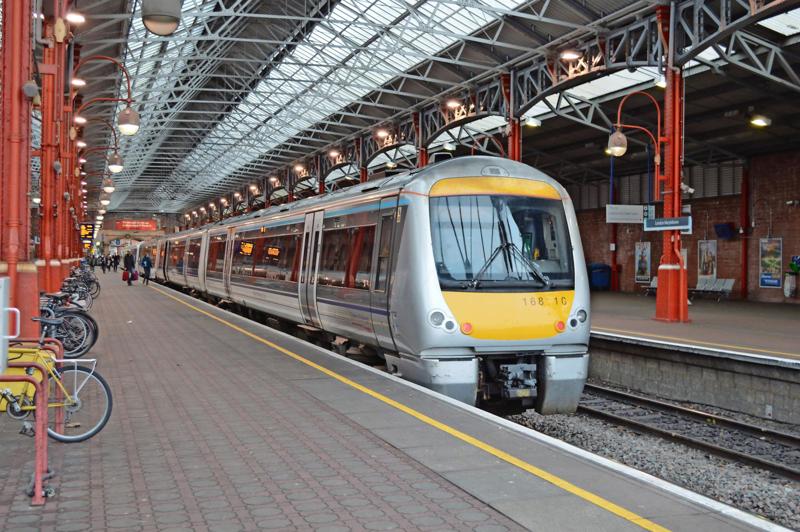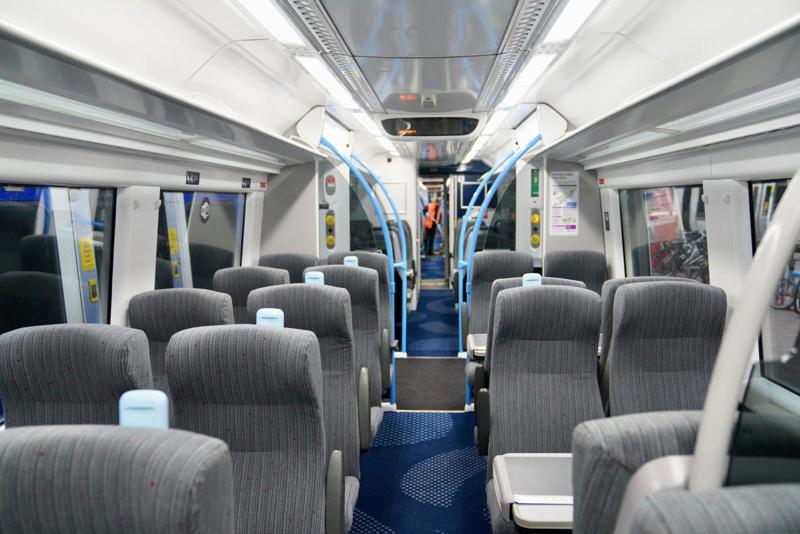
Chiltern Railways has applied to make its Class 165 and 168 fleets exempt from new passenger information systems.

Chiltern Railways has applied to make its Class 165 and 168 fleets exempt from new passenger information systems.
The Rail Vehicle Accessibility Regulations 2010 say the interior of rail carriages must have a public address system for visual announcements that show the destination and the next stop along with real-time information.
Carriages must also display the destination which can be seen by those looking at the train.
Chiltern’s ‘165s’ and ‘168s’ are not fitted with this equipment.
In its exemption, applied for by Tim Sayer, the operator’s Engineering and Safety Director, Chiltern said the existing system announces the destination and next station both visually and audibly.
The passenger information system (PIS) fitted to the Class 168s was “’state of art’ at the time’, according to Chiltern, which was retrofitted to the Class 165 fleet between 2001 and 2004.

Chiltern says its existing database of route codes for drivers to select from are “more than adequate for the base train plan used on most days”.
“There are short-term changes to the train plan due to engineering works and special events, such as events at Wembley Stadium. This results in changes to stopping patterns and destinations. It is impractical to generate a new database and upload it to each cab for these short-term changes,” Chilterns application says.
“Therefore, it is not always possible to display the correct destination and stopping pattern. Drivers have the ability to make audio announcements for passengers reliant on audio announcements but there is no way in the PIS system for drivers to make changes to the visual announcements.”
Chiltern says adding real-time is incompatible with its PIS technology, and the Department for Transport (DfT) has not agreed to fund a replacement of the system, costed at £6.5 million. Meanwhile a team to update and roll out changes would cost between £280,000 and £350,000 but “still would not still would not achieve full compliance as changes to stopping patterns made on the day due to disruption would not be reflected in the visual announcements, and a team of four to five people is unlikely to achieve 100% roll out of a new database in 24 hours”.
It also claims that there have been no complaints about its PIS system in the last 18 months, but its Accessibility Panel has not raised the issue in the last two years either.
Chiltern wants the exemption to be in place for the rest of the units’ operational lives.
“Current plans for new, compliant, trains are not yet firm but indicate that all the class 165 and class 168 units will be retired by 2040, although there is a good chance this could be extended depending on rolling stock requirements on the UK network.”
Consultation closed on January 7, with a summary of responses and next steps published by the DfT within three months.
Login to continue reading
Or register with RAIL to keep up-to-date with the latest news, insight and opinion.


















Trev76 - 14/01/2025 18:23
I'm sorry, but this smacks of a private company making excuses not to pay for an upgrade to the PIS on its trains. An exemption to last until "at least 2040"!!?? Are they serious about this?? The Chiltern fleet needs replacing before the end of the 2030s..most of the rolling stock will be 40 years old by then. As for "last minute changes to stopping patterns", as a former guard..that's what we were for. Don't they have guards on Chiltern anymore? If not then they need to reinstate them if they're worried about such problems.